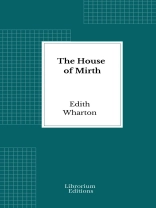It was a Monday in early September, and he was returning to his work from a hurried dip into the country; but what was Miss Bart doing in town at that season? If she had appeared to be catching a train, he might have inferred that he had come on her in the act of transition between one and another of the country houses which disputed her presence after the close of the Newport season; but her desultory air perplexed him. She stood apart from the crowd, letting it drift by her to the platform or the street, and wearing an air of irresolution which might, as he surmised, be the mask of a very definite purpose. It struck him at once that she was waiting for some one, but he hardly knew why the idea arrested him.
Buy this ebook and get 1 more FREE!
Language English ● Format EPUB ● Pages 425 ● ISBN 9782385747848 ● File size 1.2 MB ● Publisher Librorium Editions ● Published 2024 ● Downloadable 24 months ● Currency EUR ● ID 9613279 ● Copy protection Social DRM












